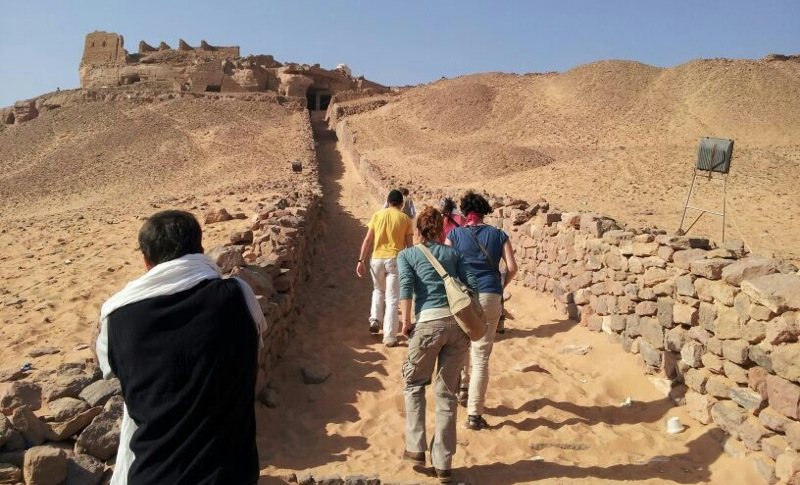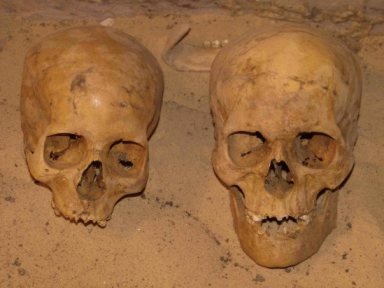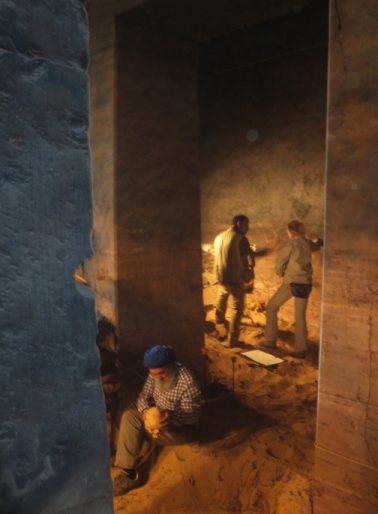 The Necropolis in Qubbet el-Hawa, outside Aswan in southern Egypt © Univ. de Jaén/afrol NewsHealth | Science - Education Even governors in Pharaonic Egypt died in their 20s
Anthropologists and archaeologists from the Spanish universities of Granada and Jaén have analysed more than 200 mummies and skeletons from the Necropolis Qubbet el-Hawa in the Egyptian region of Aswan. They were surprised to see how early in life these men in leading positions had died and what they had died of.
The researcher further found that the bones of the children buried at the site had no marks on them, "which demonstrates that they died from some serious infectious disease." The analyses of human bone remains at Qubbet el-Hawa finally showed that Aswan was a multiethnic town. Genetic analyses of the remains showed that persons with a Mediterranean ethnic origin were buried side by side with persons of an African origin. Egyptians and Sudanese seemed to live in mixed marriages in the frontier society. Oldest written sources to Central Africa's history The tombs of the newly excavated Qubbet el-Hawa necropolis further showed a large number of extraordinary inscriptions from a period of around thousand years. The hieroglyphs in the grave of Governor Herjuf from around 2200 BC, for example, recount tales from Egyptian expeditions to central Africa and may prove to be unique written sources to Africa's early history. Governor Herjuf even makes reference to "Pygmies" that were brought to Aswan following one of the expeditions. This is probably the oldest written reference existing describing this people. Other inscriptions tell of Egypt's relations with the neighbouring region of Nubia - present-day Sudan - over a period of almost 1000 years, according to Mr Botella. Most inscriptions in the Necropolis are yet to be studied and may prove valuable to historians analysing the Central African region. By staff writers © afrol News - Create an e-mail alert for Egypt news - Create an e-mail alert for Health news - Create an e-mail alert for Science - Education news
On the Afrol News front page now
|
front page
| news
| countries
| archive
| currencies
| news alerts login
| about afrol News
| contact
| advertise
| español
©
afrol News.
Reproducing or buying afrol News' articles.
You can contact us at mail@afrol.com









